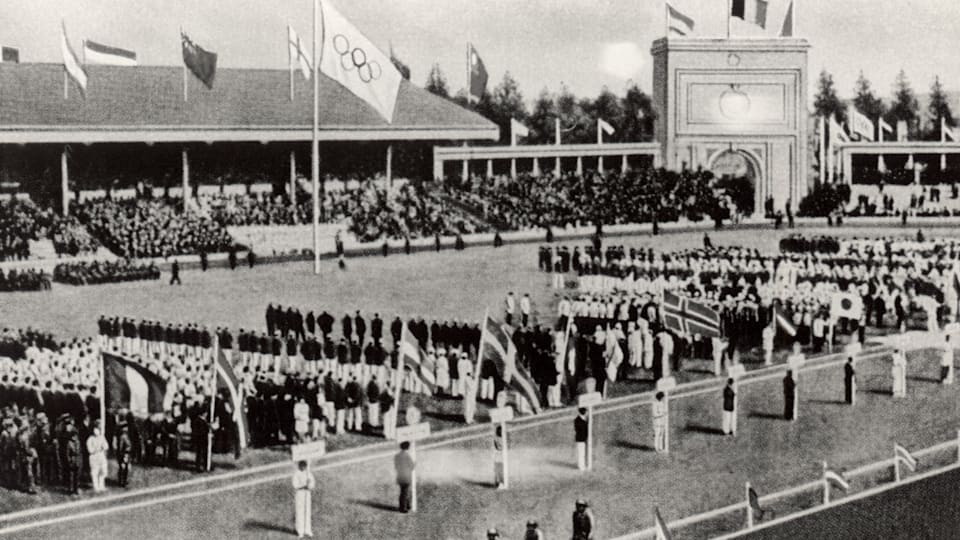India's first Olympics: A debut in Paris 1900 and beyond
Norman Pritchard represented India at the 1900 Olympics, making it the nation’s first Olympic appearance. India sent their first contingent at the 1920 Olympics.

India’s association with the Olympics goes back to the second-ever edition of the modern Games - the 1900 Paris Olympics.
On that occasion, Calcutta (now Kolkata)-born Norman Pritchard became the first Indian to take part in an Olympics. He had been on a holiday in France and decided to enter his name for the Games.
Norman Pritchard ran in five athletics events - the 60m, the 100m, the 200m, the 110m hurdles and the 200m hurdles - in Paris.
He was eliminated in the heats of the 60m and 100m.
India won their first Olympic medal - a silver in the 200m sprint, as Norman Pritchard crossed the finish line behind Walter Tewksbury of the United States. It made Pritchard the first Asian-born athlete to win an Olympic medal.
Norman Pritchard then won his second silver medal of the Olympics in the 200m hurdles, finishing behind the legendary American athlete Alvin Kraenzlein.
Pritchard also made the final of the 110m hurdles but stumbled halfway through the race.
Due to Pritchard’s British ancestry, there have been debates over Norman Pritchard’s nationality but the 1875-born did travel with an Indian travel document (a modern-day passport) and had an Indian birth certificate.
According to Olympic historian Ian Buchanan, however, Norman Pritchard had entered the Olympics as an individual and not under the Indian flag.
The International Olympic Committee (IOC) still considers Norman Pritchard to be an Indian athlete and attributed both his Olympic medals to India.
India’s first Olympic contingent
India first sent its official contingent of athletes at the 1920 Antwerp Olympics.
Eminent businessman Dorabji Tata is credited with taking the initiative to form an ‘Indian Olympic Association’ to pick and train athletes who could participate in the 1920 Olympics.
Dorabji Tata approached then-Bombay governor George Lloyd, who helped secure permission for India to play at the 1920 Olympics.
Dorabji Tata, George Lloyd and a few others then formed a committee and decided to hold trials for Olympic selection at Pune's Deccan Gymkhana - where Tata was president.
In April 1920, the committee picked a five-man Indian contingent for the Antwerp Games.
The first-ever Indian Olympic contingent comprised Purma Bannerjee (100m and 400m), Phadeppa Chaugule (10000m and marathon), Sadashiv Datar (marathon), Kumar Navale and Dinkkarao Shinde (both wrestling).
Purma Bannerjee was chosen to carry the Indian flag and thus became the first Indian flag-bearer at the Olympics opening ceremony.
Dinkkarao Shinde earned India’s first victory at the Olympics - beating Great Britain’s Henry Inman in the men’s featherweight (54kg). He recorded India’s best finish at the 1920 Olympics, finishing fourth.
Fellow wrestler Kumar Navale fell in the Round of 16 in the men’s middleweight (69kg) category.
In athletics, Purma Bannerjee was eliminated in the heats of both the 100m and 400m. Phadeppa Chaugule did not make it to the 10,000m final but finished 19th in the marathon while Sadashiv Datar was unable to finish the marathon.
India’s first brush with the Olympics post-independence
After gaining independence from the British in 1947, India’s participation in the 1948 London Olympics was a watershed moment in the country’s history.
India sent 86 athletes to participate in nine different sports - athletics, boxing, cycling, hockey, football, swimming, water polo, weightlifting and wrestling - at London 1948.
The 1948 London Olympics saw the Indian hockey team win its fourth-consecutive Olympic gold and first as an independent nation. The previous three hockey gold medals - 1928, 1932 and 1936 - came when India was under British rule.
Indian hockey would continue to dominate the Olympic stage over the next three decades, winning four more gold medals, one silver and two bronze.
Wrestler KD Jadhav was the first individual Olympic medallist from independent India, winning the bronze medal at 1952 Helsinki Olympics.
